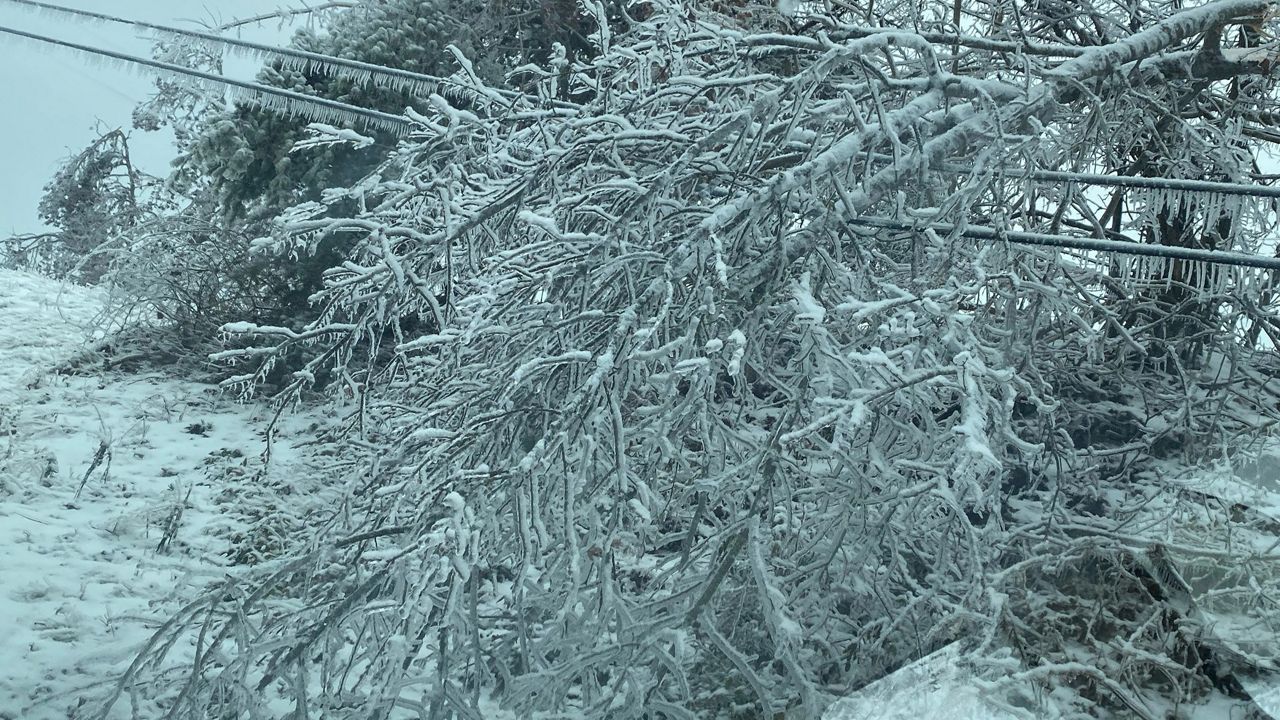LOUISVILLE, Ky. — The winter storm hitting Kentucky on Thursday is bringing freezing rain and dangerous amounts of ice to much of the state. And when ice comes, power outages often follow, as the heavy accumulation on power lines and trees causes infrastructure to fail.
With power outages likely, public safety officials across Kentucky are warning people about the potential dangers related to the use of gas-powered generators in the wake of a power outage.
“When we do have power outages, we see people from time-to-time bring portable generators and/or grills inside,” Lexington Fire Chief Jason Wells said Thursday. “That is a very, very bad idea. Those generate carbon monoxide. That is a deadly situation.’
In a tweet, the Louisville Fire Department cautioned that “gas-powered generator misuse can have deadly consequences.”
“Use portable generators outside and as far away as possible from dwellings, windows, and doors,” the department said.
The weather forecasted will likely produce dangerous conditions. Please prepare for power outages. In the aftermath of storms, gas-powered generator misuse can have deadly consequences. Use portable generators outside & as far away as possible from dwellings, windows, and doors. pic.twitter.com/TKzWdoINDY
— Louisville Fire Dept (@loukyfire) February 2, 2022
Each year, over 400 people die of accidental carbon monoxide (CO) poisoning in the U.S., according to the CDC. Tens of thousands visit the emergency room because of CO poisoning.
CO poisoning harmed many Kentuckians after the catastrophic 2009 ice storm that led to widespread power outages. According to a report compiled in 2011, the Kentucky Regional Poison Center identified 144 cases of CO poisoning in the two weeks after the ice storm because of exposure from kerosene heaters, generators, and propane heaters.
Gov. Andy Beshear referenced the problems with CO poisoning after the 2009 storm on Wednesday. “Almost everyone we lost was because they put the generator inside, or not far enough from their homes,” he said.
The CDC says the most common symptoms of CO poisoning are “headache, dizziness, weakness, nausea, vomiting, chest pain, and confusion.” People who are sleeping may not experience symptoms, potentially leading to death.
People should also avoid the temptation to heat their home with something like an oven, or vehicle.
Despite the dangers associated with the misuse of a generator, having one on hand is the best way to keep your home warm in the event of a power outage, according to Consumer Reports. If you have a generator, keep it at least 20 feet away from your home.
Those who are forced to ride out the power outage without access to additional power can try to keep their home warm by sealing windows and door leaks with plastic sheeting, duct tape, or rolled up towels.
It's helpful to move the family into one room and open blinds or curtains during the day, then cover doorways and windows with heavy blankets at night.
The Lexington-Fayette County Division of Emergency Management advises people to, “Select a room to set up camp–preferably one with a wood-burning fireplace or stove. Keep doors closed as much as possible to conserve heat.”
Pitching a tent indoors can also help people stay warm, especially as temperatures drop through the night.
In the event of severe power outages, Louisville may open warming shelters. “We’ve got some shelters that will be available for use if need be, but that will be driven by a power outage and the severity of such a power outage,” Fischer said Thursday. “Hopefully, we won’t need it, but we’re prepared if we do.”
Kentucky Emergency Management Director Michael Dossett also said Thursday that there are 26 warming stations on stand by throughout the state and one open in Nelson County.



